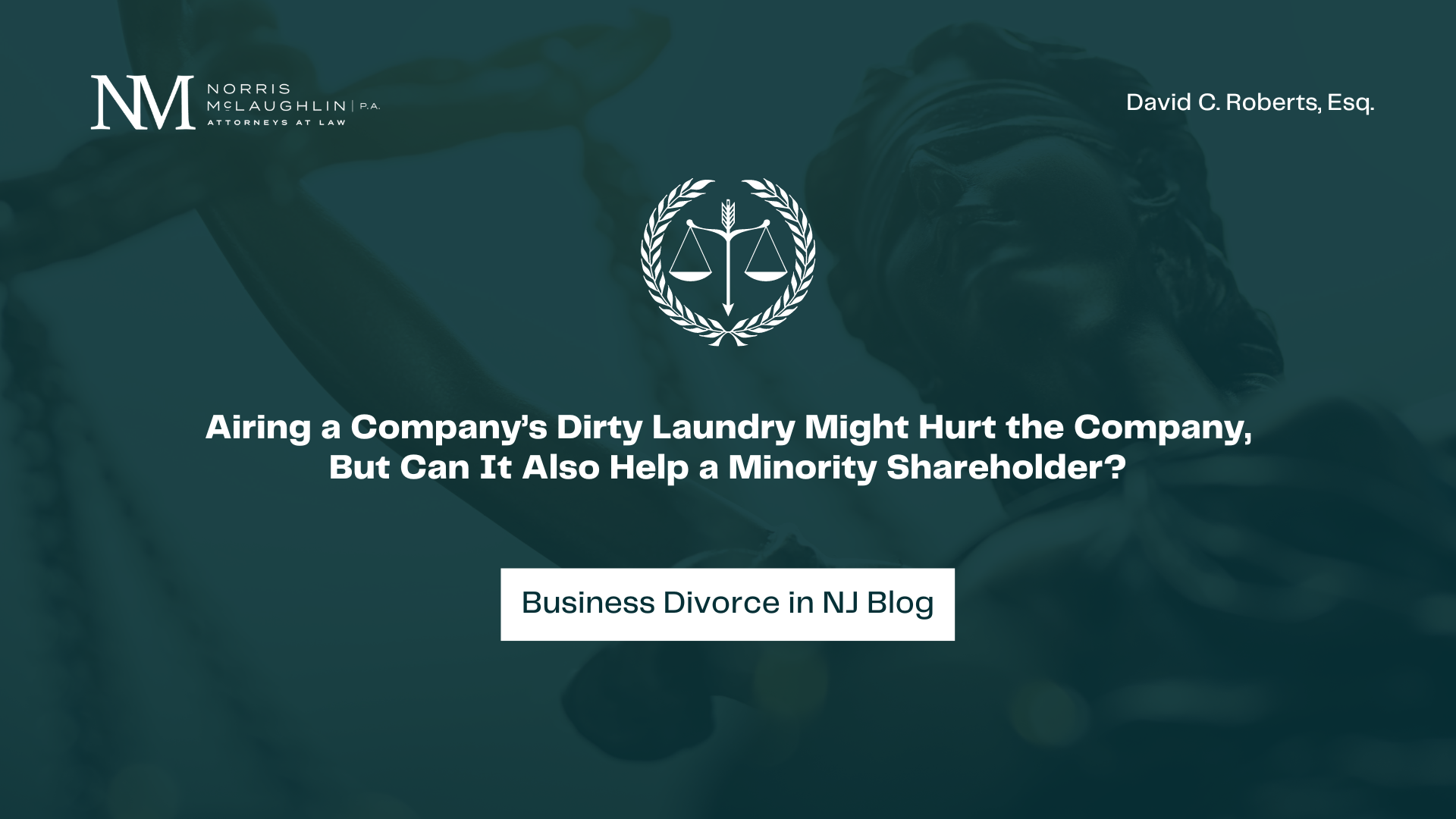Airing a Company’s Dirty Laundry May Hurt the Company. Can It Help Minority Shareholders?

When you file business divorce litigation against your business partner, is it possible to hurt the very company you are fighting over?
As many small business owners who have gone through a shareholder oppression claim know all too well, the facts that lead to litigation may be very messy. If your business partner is stealing from the company, or has taken a corporate opportunity for himself, or has done any of a variety of improper acts, the goal is to put those issues before the court. Hopefully, after hearing of such improper behavior, the court will grant you relief, such as a buyout. However, when you file suit in court, the very same salacious allegations the judge sees are available for the entire world to see, as court filings are public documents.
In other words, your company’s customers, vendors, and employees could all wind up seeing whatever you put in your court papers.
In some businesses, that would not be a significant issue; in others, it could be disastrous. Of course, someone would have to be looking for such a suit, and a customer/vendor/employee may not know – or think – to search for such a thing. So, you have to assess not only the risk level, but how you want to navigate that risk. Some business owners may want to change the way they phrase things in a publicly filed document. Others may want to propose to the majority shareholder that they try private arbitration (which is not publicly filed), since both sides may have an interest in discretion.
But for still other business owners, the risk of harm caused by public disclosure can be seen as something that impacts a majority owner more than a minority owner. If in the minority shareholder’s estimation, the majority owner has more to lose, I have seen the goal become maximizing the allegations, not minimizing them (obviously while staying within the truth).
Sometimes the allegations and the threatened allegations can lead to what is essentially a game of “chicken.” Will the minority owner really file a public complaint, airing all of the company’s dirty laundry? Will the majority shareholder really allow the dispute to get that far before he agrees to buy out the minority? You need an experienced business divorce attorney on your side, helping you navigate these tricky issues and calculations.
If you have any questions about this post or any related business law matters, please feel free to contact me at dcroberts@norris-law.com.



